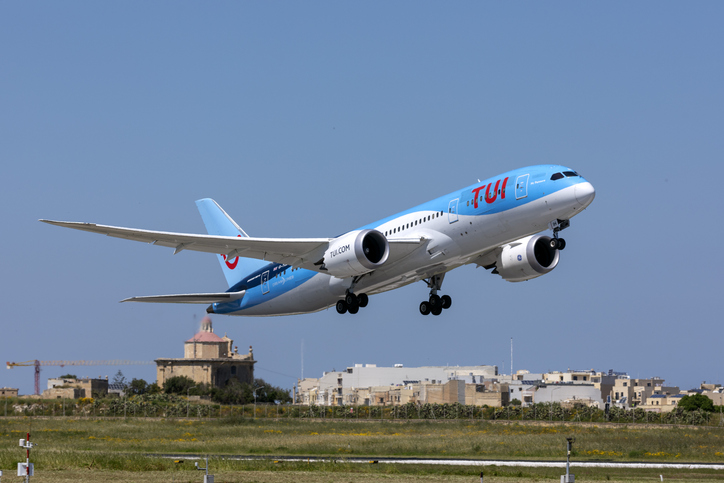ii view: Why TUI shares just surged 12%
Challenges caused by Boeing remain, but strong bookings have seen full-year underlying guidance raised.
11th February 2020 10:53
by Keith Bowman from interactive investor
Challenges caused by Boeing remain, but strong bookings have seen full-year underlying guidance raised.

First-quarter results to 31 December 2019
- Revenue up 7.7% to €3.85 billion
- Adjusted (EBITDA) loss of €147 million
Guidance:
- Reduced Boeing full year cost estimate from €220-€270 million to €220-€245 million
- Updated full-year guidance – equates to a 15% improvement when excluding Boeing costs
- Expects full-year adjusted earnings (EBIT) of between €850 million and €1.05 billion
ii round-up:
Travel company TUI AG (LSE:TUI) reported below-forecast quarterly profit, but improved its full-year earnings estimates as strong holiday bookings helped offset costs in relation to its still-grounded Boeing 737 MAX aircraft fleet.
The devaluation of Turkish Lira, higher fuel costs at its Cruises business and accelerated digital platform investments also hindered first-quarter profit. Adjusted losses grew to €147 million, up from a €83 million deficit the year before and worse than analyst estimates of nearer €130 million.
But solid current trading – summer bookings are up 14% - and a reduced estimate for Boeing-related costs helped TUI effectively improve its full-year earnings expectations by 15%.
The share price, and against reduced broader concerns about the coronavirus, rose by 12% in early UK market trading. Shares for fellow travel companies easyJet (LSE:EZJ) and International Consolidated Airlines (LSE:IAG) also rose.
Strategy at the vertically integrated holiday company focuses on four initiatives, including growing its Hotels & Cruise businesses through asset expansion, becoming a more digitally orientated platform and increasing customer upselling by offering the potential of ‘One Million Things to Do’.
TUI late last year outlined a rebased dividend policy, giving it greater financial flexibility in volatile trading conditions. The final dividend was cut by 25%.
ii view:
With so many factors outside of management’s control potentially influencing performance such as terrorism, fuel prices, currency movements, the holiday business is often a volatile and high-risk industry in which to invest.
For TUI itself, the demise of rival Thomas Cook has reduced industry capacity, allowing TUI to sweep up many of Cook's customers and help fuel current strong bookings. A rebasing of the dividend, although not a surprise, was a disappointment, even if arguably sensible given the Boeing related uncertainties and increased financial flexibility.
For investors, consumer confidence remains key. Brexit trade negotiations and recessionary German economic conditions offer a tough backdrop. Following 2019’s dividend reduction, a one-year estimated yield of just over 3% still offers some attraction, while a forward price/earnings (PE) ratio below the three-year average suggests a valuation which is not excessive.
Positives:
- Diversified asset portfolio
- Thomas Cook’s collapse reduces overcapacity
Negatives:
- A Boeing cost headwind remains
- Rebased dividend policy
The average rating of stock market analysts:
Strong hold
These articles are provided for information purposes only. Occasionally, an opinion about whether to buy or sell a specific investment may be provided by third parties. The content is not intended to be a personal recommendation to buy or sell any financial instrument or product, or to adopt any investment strategy as it is not provided based on an assessment of your investing knowledge and experience, your financial situation or your investment objectives. The value of your investments, and the income derived from them, may go down as well as up. You may not get back all the money that you invest. The investments referred to in this article may not be suitable for all investors, and if in doubt, an investor should seek advice from a qualified investment adviser.
Full performance can be found on the company or index summary page on the interactive investor website. Simply click on the company's or index name highlighted in the article.